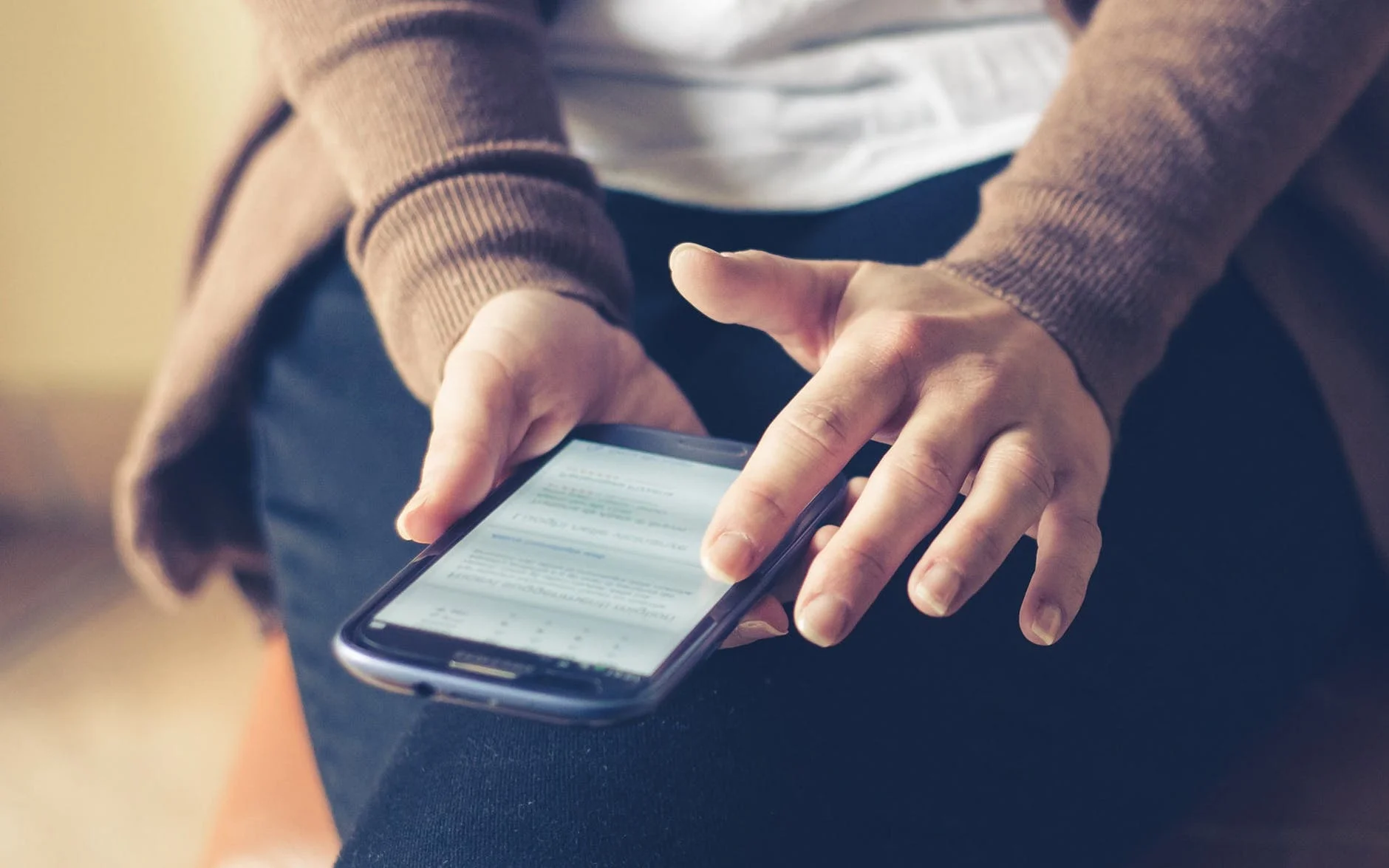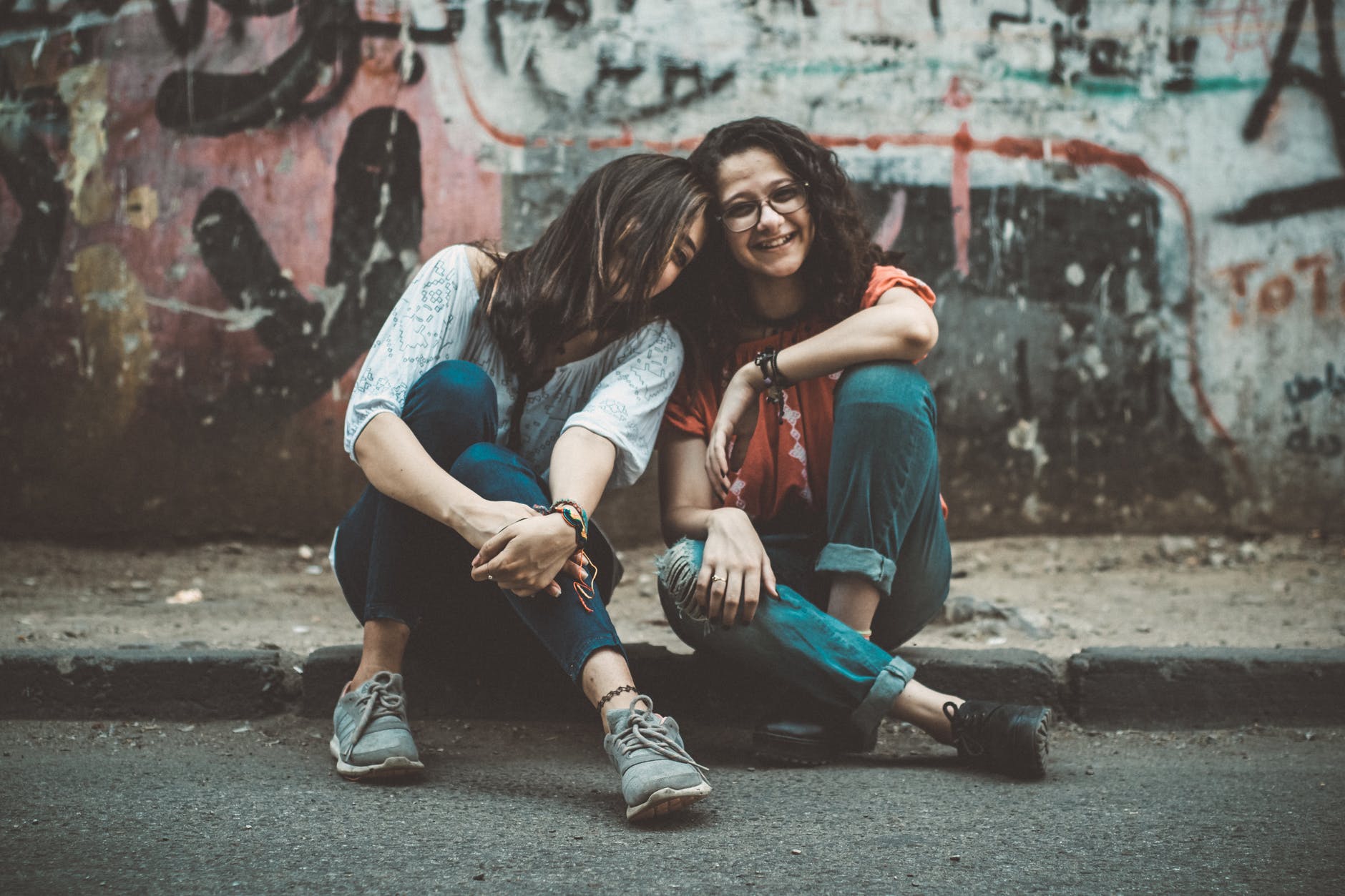"We're lonely, but we're afraid of intimacy [...]We turn to technology to help us feel connected in ways we can comfortably control. But we're not so comfortable. We are not so much in control. [...] the moment that people are alone, even for a few seconds, they become anxious, they panic, they fidget, they reach for a device. [...] Being alone feels like a problem that needs to be solved. And so people try to solve it by connecting. But here, connection is more like a symptom than a cure. It expresses, but it doesn't solve, an underlying problem. But more than a symptom, constant connection is changing the way people think of themselves. It's shaping a new way of being." - Sherry Turkle, "Alone Together," TED talk.
How much time do you think you spend in the virtual world of social media? You may be surprised to learn that on average, people spend 2 hours on social media platforms a day! There is an epidemic of social media addiction. 63% of American Facebook users log onto the site every day and 40% log on multiple times a day. Our virtual lives affect our "real" lives in significant ways. How many times do you see couples at dinner looking at their phones, rather into each others' eyes? Do you feel the itch to check your phone when waiting in line at the grocery store? Waiting for the bus? How often do people talk to each other out in public spaces, lock eyes and smile? It seems that we are noticing the outside world less and less, and instead opting for the quick, convenient distraction of our digital devices. We are frequently sucked into the bright, shiny screens of our smart phones, rather than looking up and engaging with the world around us. Our phones travel everywhere with us. And we often feel a sense of panic when we are without them.
But here's the real question: Does spending time on social media bring you joy? Or does it do just the opposite? For some, it can increase anxiety and depression, foster procrastination, magnify attention difficulties and create distance from real human interactions.
Research on the impact of social media usage on health is relatively new, but there is increasing data that it can have numerous negative effects on both mental and physical health. For example, it can interfere with sleep, negatively affect mood, and increase feelings of loneliness. The greater the number of social media platforms that one uses seems to correlate with higher levels of depression and anxiety. Of course, it cannot be ignored that the quality of the interactions that occur on social media impacts whether or not it tends to result in positive or negative effects on mood. And it can be argued that there are also benefits of social media, such as maintaining contact with far-away friends/family, reminiscing about past experiences, sharing good news, congratulating others' on their achievements and actively engaging with one another....but at what cost? At what point are we spending too much of our lives on social media? What do we give up when we choose to spend so much time on social media each day?
Although we all know it, it's hard to forget that what people post on social media is often carefully curated. People post their smiling vacation photos taken at sunset on the beach in Mexico or looking fabulous at a fancy party, not the ones of them sobbing into their cereal bowl after a heart-wrenching break-up or doing mundane daily chores with #nomakeup, and #nofilter. We see the carefully manicured snapshots into others' lives and it makes us feel "jealous, ugly and lonely."
This month's health challenge is to take a break from social media. Spend time with real friends, not Facebook friends - they are not the same. Delete the passwords from your computer, so you do not absentmindedly accidentally find yourself on your Facebook, Instagram or Twitter page (or whatever other social media worlds you are a part of), and delete all social media apps from your phone. The social media world will survive without you. And you know what? You can come back to it next month, if you really miss it! If you use social media for your business spend a few hours setting up automatic posts to go out throughout the month, so you can completely disconnect. Add a message saying that you will be away and not answering social media messages and comments. Easy. Done. Leave your email address or phone number; people will find a way to contact you if it is really important. You may find that your mood improves, you sleep better, have more time, are more focused, feel more deeply connected with friends, family and the world around you, and experience increased well-being overall.
I would love to hear about your social media vacation! Feel free to share your experience here.
So....what happens after this month?! Well, that's really up to you. See if you notice a positive, negative or neutral effect on your life. If the effect is positive, you may consider continuing your social media vacation. Or perhaps you adopt a different perspective towards social media going forward. For example, you may decide that you will limit your social media time to one session a week, or set a daily time limit. You may disconnect some accounts and not others. You may realize that social media does actually bring some benefits to your life. Perhaps you find strategies to maintain those benefits, while not letting social media rob you of being fully present in your day to day life. For example, turning off all notifications on social media apps, not allowing phones at the dinner table, turning your phone off while spending time with friends/family and taking periodic, shorter "digital detoxes."
Here's to disconnecting from our devices and returning to real human connection,
Dr. Khaira, ND





